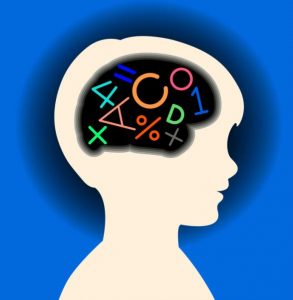- 30 years experience in the field of Special Education
Common Learning Disabilities in Children
How to Teach Self Esteem to Special Needs Children
April 13, 2015Common Physical Disabilities in Children
April 27, 2015 Children that have learning disabilities tend to have quite a few that are considered common. This doesn’t mean that your child is doomed for life or that they can’t lead a normal life just because they have a disability. In fact, these days, more and more people and kids are overcoming disabilities and can lead pretty normal lives. Having a disability today is not the same as having one 20 or even 15 years ago. These days, your child can overcome a variety of situations, disabilities and live positive, satisfying lives. If your child has been diagnosed with a specific disability, you probably have all the information you need as is. But, if your child has not been to see a doctor yet or you just want to know more about common disabilities in children, here are a few below that you can check out.
Children that have learning disabilities tend to have quite a few that are considered common. This doesn’t mean that your child is doomed for life or that they can’t lead a normal life just because they have a disability. In fact, these days, more and more people and kids are overcoming disabilities and can lead pretty normal lives. Having a disability today is not the same as having one 20 or even 15 years ago. These days, your child can overcome a variety of situations, disabilities and live positive, satisfying lives. If your child has been diagnosed with a specific disability, you probably have all the information you need as is. But, if your child has not been to see a doctor yet or you just want to know more about common disabilities in children, here are a few below that you can check out.
Dyslexia
This learning disability is based on words more than anything else. It doesn’t necessarily have to be with all words though; it can just be certain words in a sentence. When a child reads a sentence he or she may get their words confused, or they may take the last letter from the word and place it in the front of the word i.e.; Impossible, Impossible. Or they may leave letters out entirely or they even may scramble the word up altogether. Not only does dyslexia give issues to children with digital reading i.e.; reading content on a computer screen, while playing a video game, or while reading on a tablet, but they also will, have issues in print as well i.e.; printed magazines, printed books, printed pamphlets, etc. One of the biggest ways to tell if your child has dyslexia is by the way they sound words out. Words that should be easy such as pi-an-o or com-pu-ter are made harder than they should be. They also might have a hard time remember words that they should know.
Dyscalculia – Math Disability
We all have issues with math from time to time. But, when it comes to recognizing common symbols in the math world such as the addition or subtraction symbols and if your child does not know what they are, they may have Dyscalculia – Math Disability. Children with Dyscalculia also might have an issue when it comes to simple math concepts, fractions, or simple numbered sequences such as 2/4/6/8/10, etc. Children and adults with Dyscalculia also might have a hard time with remember written numbers or may get them confused with letters such as thinking of the number 3, but writing down an S or thinking of the number 8, but writing down a B. If you go over a lot of math concepts with your kids, you probably also deal with money. If your child is having a hard time figuring out something simple like estimating cost or estimating differences between costs he or she could have Dyscalculia but it’s always better to talk to a doctor and not self-diagnose your kids. And medication is not the only way to fix these disabilities these days either. Sometimes when it comes to learning disabilities its less about medication, and more about understanding how to teach them in a different way so that they will understand better or more clearly.
Aphasia, Dysphasia or Global Aphasia
Having the ability to express yourself, is one of the amazing wonders of the human body. But, what if you couldn’t do this? What if you had a hard time expressing what you thought, felt, needed, wanted, etc. If your child has a hard time with expressing themselves when it comes to words, they may have one of the following learning disabilities: Aphasia, Dysphasia or Global Aphasia. While Aphasia, Dysphasia or Global Aphasia often deals with emotions or expressions that are spoken with words, it can also have to do with written languages as well i.e.; Johnny is sad today, this seems like a really simple statement and yet some kids have a hard time expressing exactly how they are feeling on any given day, let alone any given moment or situation. Some of the signs of Aphasia, Dysphasia or Global Aphasia include lower reading comprehension than expected for their age, not having the ability to speak their mind, or getting easily frustrated when speaking.
